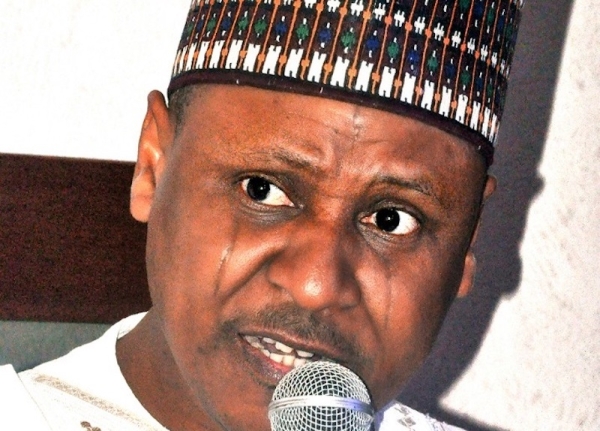Folalumi Alaran reports that Information and National Orientation Minister, Mohammed Idris, on Wednesday reeled out specific interventions of the President Bola Tinubu’s government especially in the area of youth development in the last one year.
The last few weeks have not been the best of times for the administration of President Bola Tinubu. The government at the centre in recent times had contended with various issues requiring urgent attention.
One of such issues has to do with the notice given by some aggrieved Nigerian youths to proceed on peaceful protests nationwide over rising cost of living in the country from August 1 to 14, 2024.
At various fora, government officials including President Tinubu had appealed to the organisers to give government some time to address the key issues raised by the youths.
On his part, Information and National Orientation Minister, Mohammed Idris on Wednesday invited Editors and Bureau Chiefs of media houses to a media parley where he laid bare programmes and activities of government targetted at the youths. He was in the company of the Secretary to the Government of the Federation, Senator George Akume, Finance Minister and Coordinating Minister of the Economy, Wale Edun and Budget and Economic Planning Minister, Atiku Bagudu and some other Ministers.
He traced the present administration to May 29, 2023 when Tinubu was sworn in as President and Commander-in-Chief of the Armed Forces of the Federal Republic of Nigeria. His inauguration marked the beginning of a new era, one aimed at addressing the nation’s longstanding challenges and ushering in a wave of reforms that promise to reshape Nigeria’s socio-economic landscape.
The Minister spoke about the N70,000 new minimum wage bill which the President signed into law on Monday ending months of deliberations between government authorities, labour unions, and the private sector.
The President signed the bill into law at the State House in Abuja days after the National Assembly had passed the Minimum Wage Act, 2019 to increase the National Minimum Wage from N30,000 to N70,000.
Also, the Nigerian Educational Loan Fund on Wednesday disbursed the sum of N850M to institutions as fees.This was apart from the over N1.7 billion that has been disbursed to about 20,000 students.
The Fund’s Managing Director, Akintunde Sawyer, who.made this disclosure said “the sum of N850 million will be leaving the account of NELFUND Today to institutions. This is apart from the N1.7 billion that has already been disbursed.”
He revealed that the Fund had disbursed institutional fees to 20,000 students through their institutions while noting that a total of 260,000 loans including institutional fees and upkeep have been approved. No fewer than 1.2 million students are expected to benefit from this cardinal programme of President Tinubu’s administration.
The President had earlier on April 3, 2023, approved N35bn for the take-off of the scheme after signing the law backing the scheme.
With rising food inflation and shortages posing significant challenges, Tinubu’s government took urgent action to ensure food security. The distribution of 42,000 metric tons of food nationwide and the promotion of agricultural mechanization were key steps in this direction. These measures are intended to boost agricultural production and empower young farmers, thereby strengthening the agriculture and food value chain.
Also recently, the Tinubu government sent 20 trucks of rice to each of the 36 states of the federation and the Federal Capital Territory for distribution to the most vulnerable in the society to cushion the effect of rising cost of food items.
From the beginning, the Tinubu Presidency made it clear that economic reform would be at the heart of his administration. His decision to remove the long-standing fuel subsidy was one of his first and most controversial moves. This policy, which had cost the government approximately $10 billion annually, was seen as a drain on public finances and a breeding ground for corruption. By eliminating the subsidy, Tinubu aimed to free up resources for investment in critical sectors and reduce the fiscal deficit.
The immediate aftermath of the subsidy removal was turbulent. Panic buying and skyrocketing fuel prices led to nationwide strikes and protests. However, the administration’s steadfast negotiations with labor unions and strategic communication helped to stabilize the situation.
The World Bank hailed the move, acknowledging its potential to strengthen Nigeria’s economy by curbing wasteful spending and stimulating private sector investment in the oil industry.
In line with subsidy removal, Tinubu’s administration also embarked on unifying the exchange rate. By floating the naira, the Central Bank of Nigeria aimed to balance the official, investors, exporters, and parallel market rates. This bold step was intended to attract foreign investment and stabilize the economy, despite initial shocks to the currency’s value.
[Thisday]


